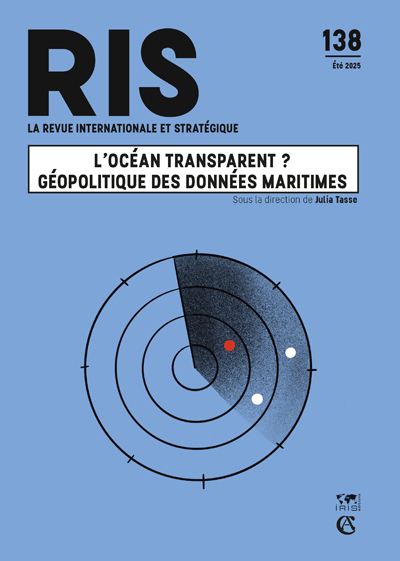Juin 2025
The Materiality of Data: Infrastructures of Maritime Power Between Vulnerability, Criticality, and Resilience
 L’océan transparent ? Géopolitique des données maritimes
L’océan transparent ? Géopolitique des données maritimes
RIS 138

ROMANE LUCQ, JUSTINE MINGAM, JULIA TASSE AND MARC VERZEROLI – The digitalisation of the ocean is redefining maritime power, shifting the focus from control over naval and shipping material assets to control over information and its infrastructure. How does this shift affect strategic thinking in maritime security? › CHRISTIAN BUEGER – We are indeed witnessing a fundamental shift in the very nature of sea power and what it may represent in the future. Traditionally, sea power was predominantly defined by platforms and ships — the more you had, and the more effectively you could deploy them, the better. However, from the late 1990s and early 2000s, a noticeable shift began to take place: sea power became increasingly associated with law enforcement roles and constabulary functions. It also began to encompass a broader conception of naval diplomacy. Naval diplomacy once largely consisted of dispatching ships to strategic locations. It was now expanded to be comprised


